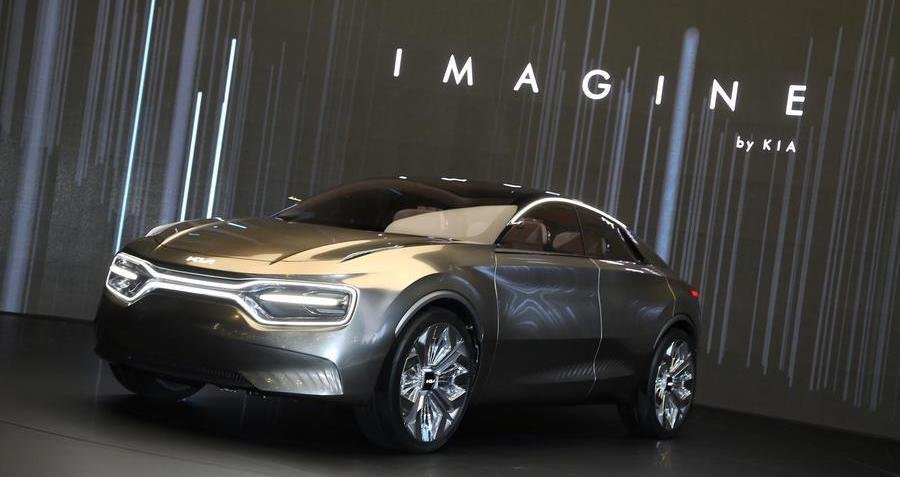Kia to launch new EV in 2021 as part of £19bn strategy

Kia will launch a bespoke new EV in 2021 as part a £19 billion strategy to transition to a maker of electrified vehicles and mobility solutions within the next five years.
So-called Plan S is hoped to help the Korean firm establish “a leadership position in the future automotive industry”. It details planned new models, investment strategies and sales targets.
Kia's all-new battery-electric car will arrive in 2021 in line with an ambition to offer a “full EV line-up of 11 models and reach a 6.6 % global EV market share by 2025”. Full details are yet to be confirmed, but the model will sit atop a bespoke new platform and is claimed to offer a range of more than 310 miles.
Kia also confirmed it will feature a “crossover design which blurs the boundaries between passenger and sports utility vehicles”, suggesting it will be closely linked to the Imagine by Kia concept revealed last year.
The model is said to be capable of charging in less than 20 minutes with a high-speed 800V charger, but a 400V system will be fitted to other derivative models in Kia’s future EV line-up to allow for more varied pricing.
Kia plans for EVs to account for 20% of its total sales in developed markets (South Korea, North America and Europe) by 2025. It will continue to promote conventionally fuelled cars in developing regions before gradually introducing electric models.
This approach is anticipated to allow Kia to incorporate specific market demands at the product planning stage and therefore better tailor each model according to region.
The company is aiming to achieve a 6% operating profit margin by 2025. It expects that high-margin SUV models will account for 60% of all sales outside China by 2022, helping to fund development of future technology and models.
In addition to expanding its EV portfolio, Kia will meet growing demand for e-commerce and car-sharing with plans to develop EV infrastructure in cities that promote the use of zero-emissions vehicles.
Alongside the introduction of a range of charging points, it's planning to build ‘mobility hubs’ in some global cities that will act as a transfer point between combustion-engined and electric cars before entry into a restricted zone. The buildings will also house charging stations and maintenance facilities.
Further down the line, Kia expects to use these mobility hubs as operating bases for a fleet of autonomous taxis and shuttles. These will sit atop a bespoke self-driving vehicle platform that's set to enter series production in 2024.
There are also plans to target the transport, logistics and distribution sectors. Currently accounting for 5% of the global automotive market, customers in these areas are expected to account for 25% of all vehicles sales by 2030. Kia will introduce specially adapted versions of its Soul EV and e-Niro before developing bespoke vehicles for the delivery, car-sharing and logistics sectors.
These new vehicles will sit atop a modular, skateboard-style EV chassis that features a low-mounted battery and compact motor and can be adapted for a wide range of vehicle uses.
Related News
